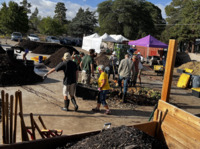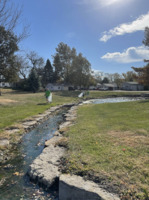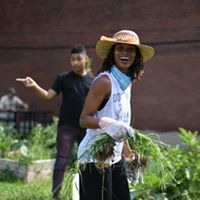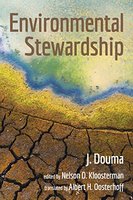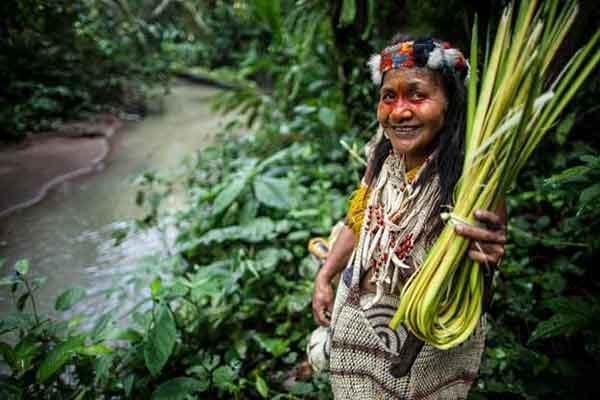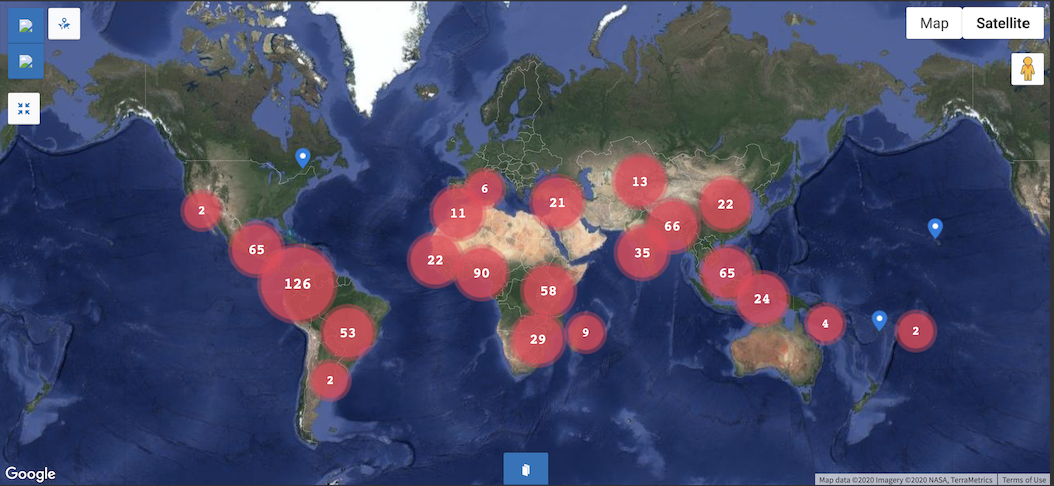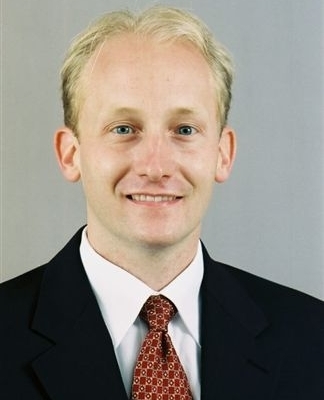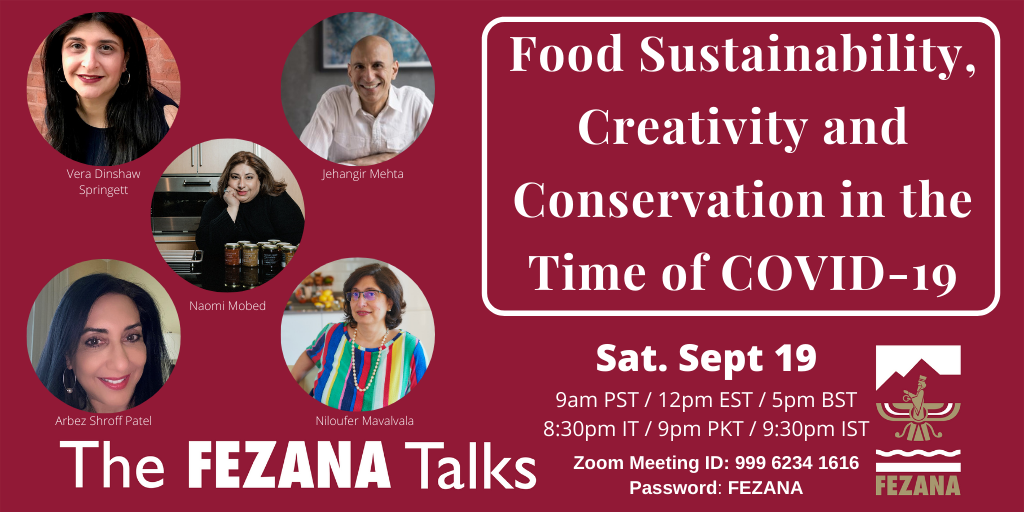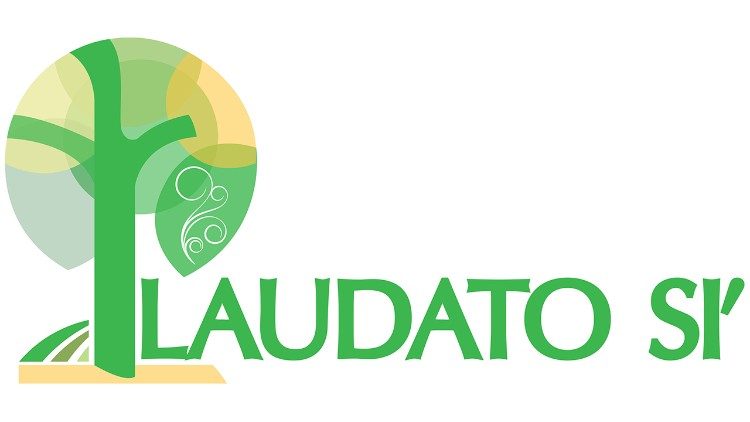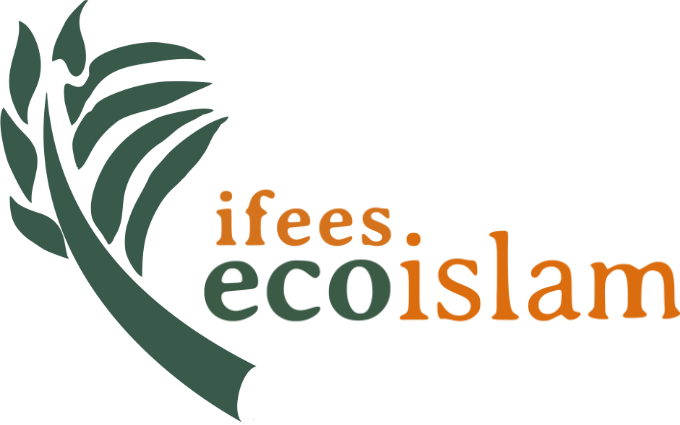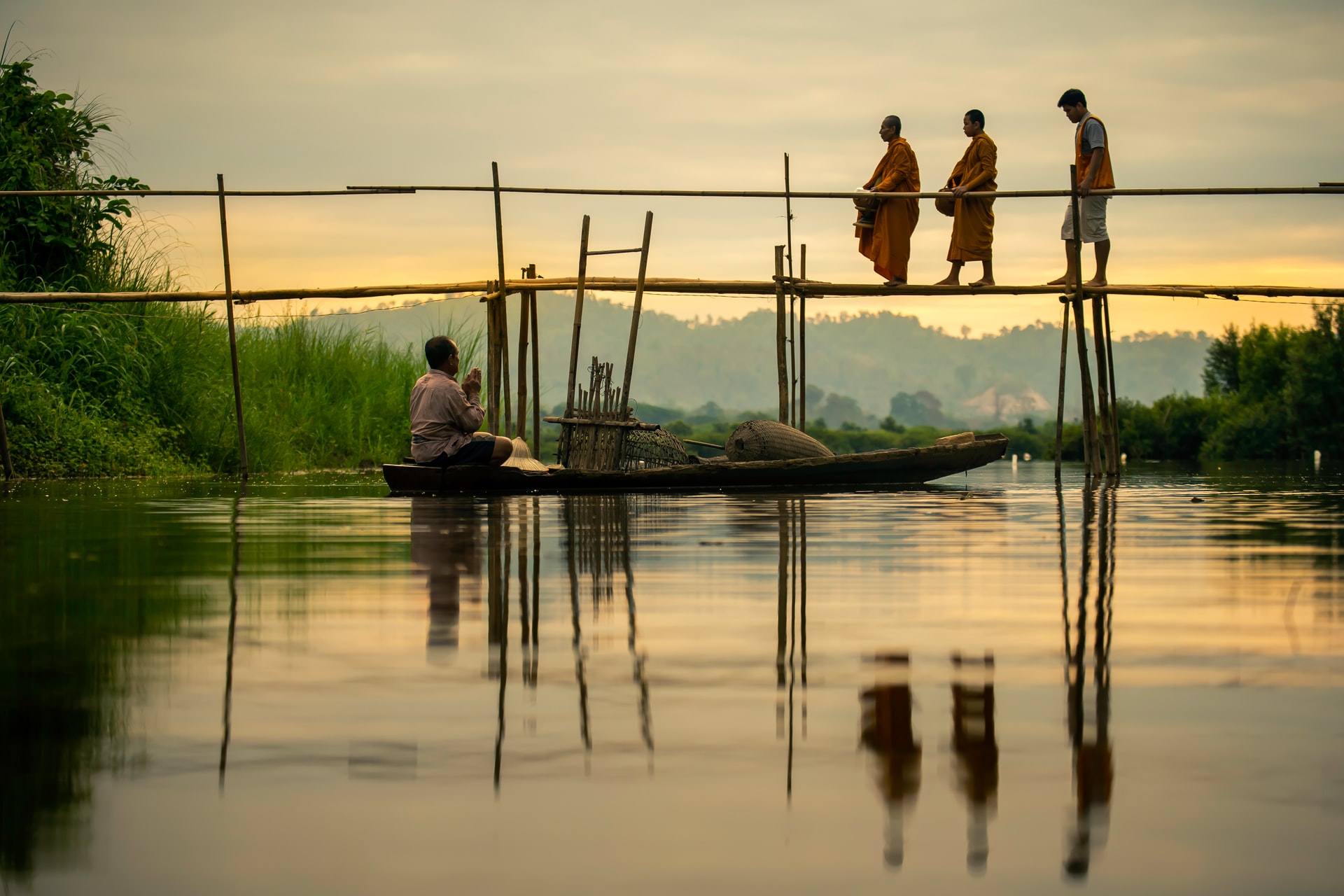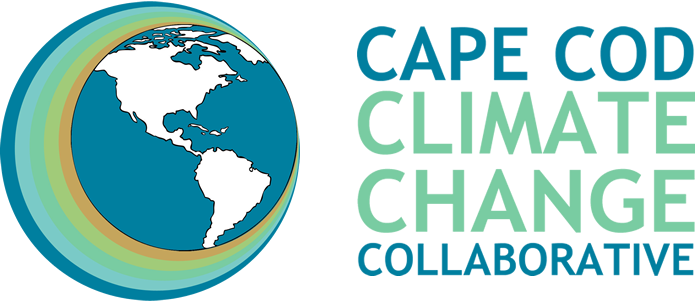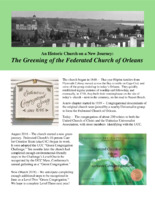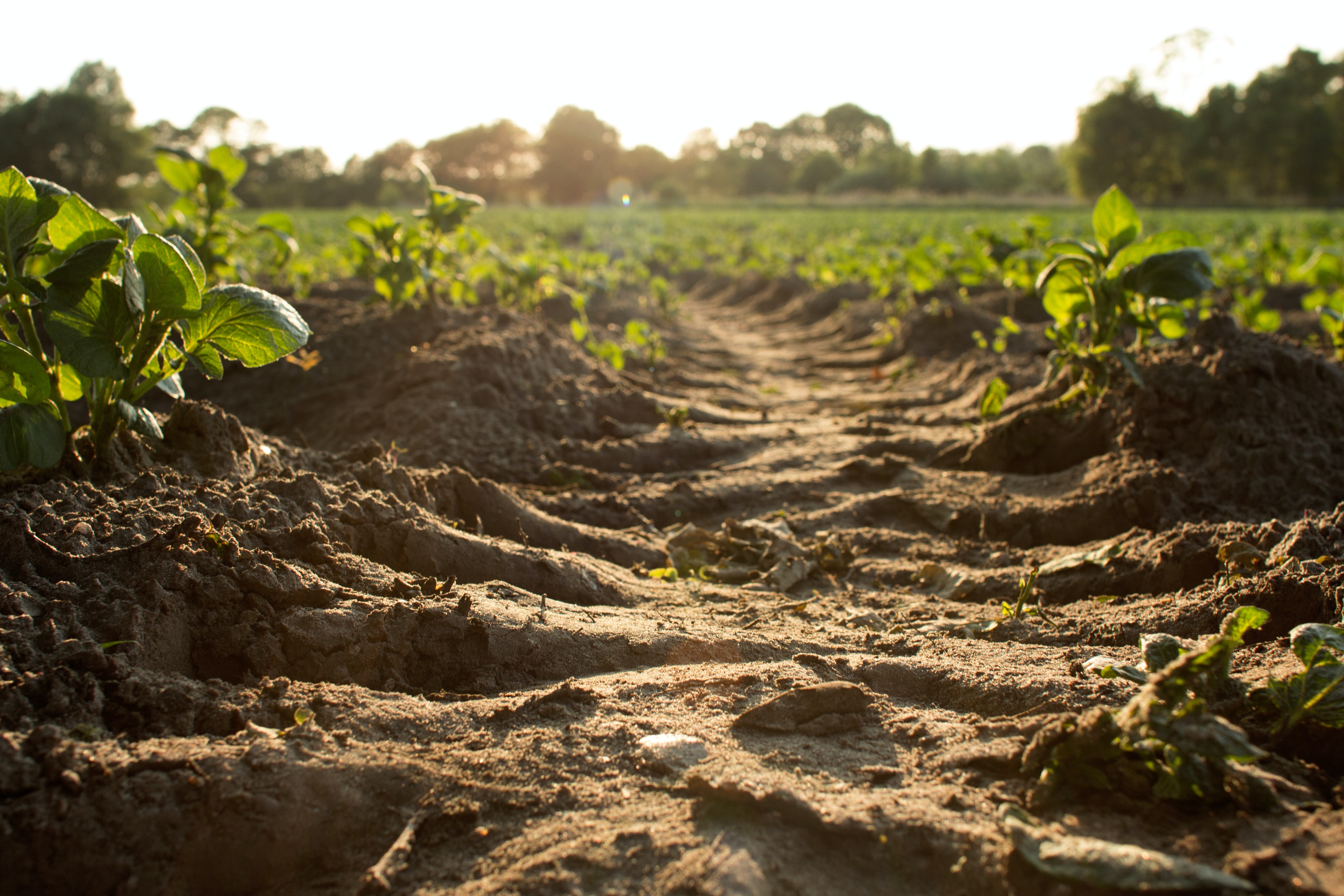Search
84 items
-
Keeping Our Campus Clean
"This picture was taken on my college campus in Missouri. If you’re looking at the photo and you think you see trash bags, then you would be correct. We were doing a nature walk around campus and collecting any trash or recycling that has made its way onto campus. Our grounds team does an amazing job at keeping our campus clean but because of how close neighboring houses are, sometimes trash blows into our little creek. This creek is home to a turtle who likes to pop his head out every once in a while and startle you. There are also quite a lot of different bugs in this area that like to stay near the water!" Taken by Erin Frink. Submitted to the RESTORExchange Sustainability Photo Contest. -
Engaged Organizations: General Board of Global Ministries
General Board of Global Ministries discuss their vision and span of their work on their website. Their areas of impact run the gamut for a multitude of environmental and social justice issues:
"Connection is at the core of our work. Global Ministries connects The United Methodist Church, its people and congregations to partner with others engaged in God’s global work, which takes place in a variety of settings, countries and cultures.
Global Ministries works through missionaries and partners in more than 60 countries around the world. " -
Engaged Organizations: A Rocha International
A Rocha International discuss their mission on their website:
"At A Rocha USA, our mission is to restore both people and places through collaborative, community-based conservation.
We resource Christians to care for creation where they live by building a network of hands-on conservation projects in communities across the nation. Through partnerships with individuals, churches, and community groups, we provide content, curriculum, and a network of support for improving local habitats and increasing biodiversity." -
Resolution on Global Warming and Atmospheric Degradation
The Church of the Brethren of The General Board issued their Resolution on Global Warming and Atmospheric Degradation on October 21, 1991. The final section of the resolution, discussing the General Board commitment, is as follows:
"FURTHER the General Board commits itself to; support and participate in national and international networks of religious bodies and other non-governmental organizations addressing the greenhouse effect; and continue through its program staff, within the context of a theology based on caring for the earth, and educational effort to acquaint the members of the Church of the Brethren with the nature, causes, and consequences of the greenhouse effect, including suggestions for individual and collective action to help address the problem. This will include the promotion of the use of the General Board’s study resource, Creation in Crisis: Responding to God’s Covenant, in all congregations. We will elicit the cooperation of District Executive as agents within each district to work directly with pastors to reach the membership of the church." -
Engaged Organizations: Global Oneness Project
The Global Oneness Project was founded in 2006 as an initiative of Kalliopeia Foundation, and is focused on education aimed a planting seeds of empathy, resilience, and a sacred relationship to our planet. They are passionate about the power of stories and offer a rich library of multimedia stories comprised of award-winning films, photo essays, and essays as well as companion curriculum and discussion guides focused on world culture, social justice and sustainability. -
Environmental Stewardship
This book goes into detail about how the Christian religion goes about environmental stewardship. They look at how bible passages talk about preserving the Earth and the morals we should have surrounding it. It dives deep into how science interacts with human interaction with the Earth and the damage that we have done to Earth, as well as what we should do to correct ourselves. -
How Buddhist monks in Ladakh are fighting climate change
Buddhists Monks in the Himalayas are taking a stand to climate change. On Earth Day 2018, thousands of people came together in the village of Yerat to plant trees. The region is rapidly losing glaciers, causing a shortage in water supply to the villages in the area who rely on snowmelt for water. The volunteers were inspired to participate due to their devotion to His Holiness Kyabgön Chetsang Rinpoche and his vision for "a more verdant and organic Ladakh." -
Seeing true nature: Buddhism and the environment
John Worthington-Hill describes how Buddhism can encourage environmental awareness and sustainability. Embracing individuality is our disconnection from the natural world. In order to live in unity with the earth, we must find the 'middle way' (a buddhist morality based on self-discipline). "Self-centeredness is the great illness from which all imbalance, insensitivity and abuse ultimately stem – an illness directly linked to the Buddha’s ‘three poisons of greed, ill-will and delusion’. These poisonous mentalities seep into the collective consciousness and are instilled in the norms and structures of culture and society, helping to direct how politics and economics deal with the environment." "Environmental destruction is therefore an outer manifestation of an inner affliction. If our thoughts are polluted, then our actions will be polluted too, and so will their consequences." -
GOP Rep. Mike Simpson: "It’s my party, and I’ll fight climate change if I want to"
An article published on Grist.org that covers Congressman Mike Simpson's views on salmon conservation. Simpson's statements are noteworthy for sustainability and religion as he is going against Republican party views by acknowledging an issue with climate change and the environment with his religious views. It is reported that his speech was obviously fueled by a spiritual obligation to preserve salmon as he describes salmon as incredible God created creatures and that their cycle of life should not be messed with. It is also important to note he was already elected for his 11th term in the house, so it is less likely that his more left leaning statements come from a desire to secure votes. -
Indigenous peoples and local communities offer best hope for our planetary emergency
Indigenous peoples steward 80 percent of the world’s remaining biodiversity, yet their voices are often excluded from decision-making. Moreover, such environmental defenders remain a vulnerable group that is troubled by intimidation and torture. In this article, the authors cover a few organizations, such as Nature for Life Hub and Youth4Nature, established to empower and defend the voices of indigenous peoples, local communities, and the youths. -
Nature-Based Solutions Database
As a part of the Equator Initiative and the UNDP (United Nations Development Programme), the Nature-Based Solutions Database connects communities through sharing thousands of viable eco-solutions from 500+ communities across five continents.
Explore the Solutions Database to learn how outstanding local communities and indigenous peoples around the world are making possible the achievement of the UN Sustainable Development Goals through nature-based actions.
-
Profile: Jerry Freewalt
Jerry Freewalt is Director of the Office for Social Concerns of the Catholic Diocese of Columbus, Ohio. In this capacity, he serves as an educator and advocate to further the understanding of the Church’s social justice teachings. Jerry joined the office in 1995 as the respect life coordinator. Jerry also administers the respect life program, parish social ministry, rural life, jail and prison ministry, advocacy for persons with disabilities, and other education and advocacy efforts. -
Columban Center for Advocacy and Outreach
The Columban Center for Advocacy and Outreach (CCAO) was founded in 1985 as the national advocacy office for the Missionary Society of St. Columban in the United States.
CCAO serves as the line of communication between Columban missionaries on the ground and policy-makers in Washington, D.C. Their mission is to work towards a more just, peaceful, and environmentally sustainable world by engaging in the political process guided by our faith and the Gospel. They work for structural change for the poor and marginalized populations Columbans serve around the world. Moreover, they advocate for policies and structures that bring society and the world into the right relationships with all of God’s Creation.
CCAO follows Catholic Social Teaching as their lens to engage in legislative advocacy and community engagement. -
Conference of the Parties (COP)
The COP is the supreme decision-making body of the Convention. All States that are Parties to the Convention are represented at the COP, at which they review the implementation of the Convention and any other legal instruments that the COP adopts and take decisions necessary to promote the effective implementation of the Convention, including institutional and administrative arrangements. -
Plant with Purpose
Plant With Purpose’s programs equip farming families around the world to increase farm yields, heal damaged ecosystems, improve nutrition, and increase household savings and opportunities. Always standing with the world's most vulnerable populations, this integrated approach solves two major issues facing the world today: environmental degradation and rural poverty.
You can plan a tree or fundraise in partnership with Plant with Purpose. -
The FEZANA Talks #9: Food Sustainability, Creativity & Conservation During COVID-19
COVID has changed the way we eat, cook and live in many ways — good and bad. This discussion hosted by FEZANA (the Federation of Zoroastrian Associations of North America) focuses on the impact of the pandemic on the food supply chain, and how it affected the availability of the basics, leading people to get more creative in the kitchen. Everything from making our own bread to using leftovers to create new unexpected meals, has allowed people to ramp up their cooking skills, rely on sustainability and be more conscious of food wastage. Historically resembling the ways of our ancestors. -
Laudato Si' Action Platform
The Laudato Si' Action Platform is a collaboration between the Vatican, an international coalition of Catholic organizations, and "all people of good will." Rooted in the strengths and realities of communities around the world, the platform takes a group-up approach to empower all to take "decisive action, here and now" as we journey towards a better future together.
The platform offers:
- Laudato Si Plans for institutions, communities, and families to use and implement their response to Laudato Si'
- A process-oriented approach
- Practical guidance on actions that help build a better future through the Laudato Si’ Goals
- Recognition of progress -
The Islamic Foundation for Ecology and Environmental Sciences (IFEES)
The Islamic Foundation for Ecology and Environmental Sciences (IFEES) is a foundation founded in the United Kingdom committed to the preservation of the Earth as a healthy environment for all living things. This is also a call on Muslims to live up to their obligations as guardians of Allah's creation (Khalaifa - Qur'an 6:165) and endeavor to ensure that future generations inherit a livable planet.
"Our exertions since the mid-1980s have been directed towards creating mass awareness and include research, the production of teaching materials, training, and project development and we offer this work as a gift to our fellow humans whoever and wherever they may be." -
The 12 Principles of Permaculture: A Way Forward
This blog article describes the basics of permaculture (permanent culture). Permaculture is rooted in the observation of natural systems and indigenous knowledge. The author introduces the solution permaculture offers to help us transition to a more resilient, ethical, and sustainable future better for the planet and its inhabitants. -
How faith-based organizations are restoring nature
Many ecosystems around the world, from forests to coral reefs, are in decline, victims of pollution, climate change and resource extraction.
But faith-based organizations are increasingly stepping in to help repair these natural spaces. From projects to save Ethiopia's forests to yogic farming in India to botanic gardens in Qatar, in many cases, religious leaders have become environmental influencers, championing nature-based solutions that experts say are crucial to saving the ecosystems that underpin human society. -
The Cape Cod Climate Change Collaborative
Established in 2016, the Cape Cod Climate Change Collaborative is a coalition of Cape and Islands-based organizations, businesses and citizens whose mission is to unite available knowledge, resources, talent and tools to mitigate climate change impacts on Cape Cod, reduce greenhouse gas emissions, and work toward achieving “net zero”-based goals for the Cape & Islands. We seek to create conditions to foster innovative, feasible, cross-sector solutions to the climate crisis.
Board members include community leaders from across the region representing organizations such as the Association to Preserve Cape Cod, Cape Air, Cape Light Compact, Center for Coastal Studies, Friends of Pleasant Bay, Outer Cape Energize, Woods Hole Research Center, and numerous faith, educational, non-profit and business entities. -
The Greening of the Federated Church of Orleans
The church began in 1646 – That year Pilgrim families from Plymouth Colony moved across the Bay to settle on Cape Cod, and some of the group ended up in today’s Orleans. They quickly established regular patterns of worship and fellowship, and eventually, in 1718, they built their meetinghouse on the site of today’s church – next to the cemetery, on the road to Nauset Beach.
August 2016 – The church started a new green journey. Federated Church's 10-person Care for Creation Team (aka C4C) began its work. It soon adopted the UCC “Green Congregation Challenge.” Ten months later the church had completed enough environmental-friendly steps in the Challenge’s Level One to be recognized by the UCC Mass. Conference's annual gathering as a “Green Congregation.”
Now (March 2018) – We anticipate completing enough additional steps to be recognized in June as a Level Two “Green Congregation.” We hope to complete Level Three next year! -
Books on Religion and Climate Change
This list includes 37 titles (and counting) that examine climate change and our connection to the environment from multifaceted religious perspectives.
This could serve as an inspiration for anyone who's interested in learning more about the philosophy of environmentalism.
The list updates as new books are being published. -
A Bahá'í Compilation on Soil and Earth
This compilation gathers a selection of references to soil, earth and minerals in the Bahá'í Writings, including the ways these are referred to both symbolically and literally.
Contents:
Mineral Kingdom
Agriculture
Metaphorical Uses
Humility
Earth as Tomb
Rain on Soil
Fertile versus Barren
Cultivation - Divine Education

